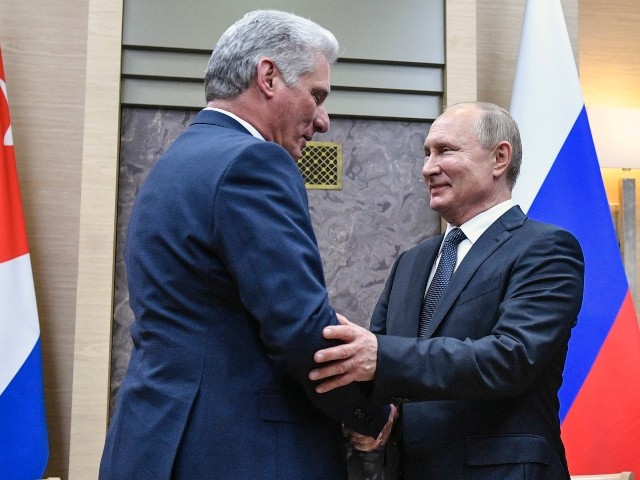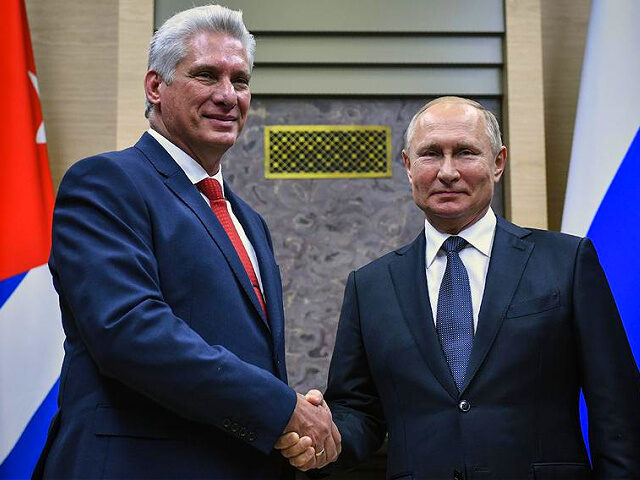A Liberia-flagged tanker carrying about 700,000 barrels of Russian fuel oil arrived in Cuba last week, the Latin American news website Infobae reported on Sunday, noting that the shipment demonstrated that Moscow was not only supporting Cuba’s communist regime but also finding outlets for oil stock shunned by the West in response to Russia’s latest war with Ukraine.
“The Liberia-flagged Aframax tanker Suvorovsky Prospect arrived in Cuba’s Matanzas port [on July 14] carrying about 700,000 barrels of fuel oil, loaded at Russia’s Ust-Luga port. The cargo is worth some $70 million at market prices,” Reuters reported at the time.
“The vessel is owned by a unit of top Russian shipping conglomerate Sovcomflot, according to maritime database Equasis. Sovcomflot is under British, Canadian and U.S. sanctions and has lost insurance by Western firms for its fleet,” the news agency noted.
Russian oil and fuel are currently sanctioned by the U.S. and Canada. Washington spearheaded a financial sanctions campaign against Russian companies and entities on February 24, hours after Moscow launched its latest war with neighboring Ukraine. The U.S.-led embargo has gained traction among most American allies, with Europe and Britain reportedly planning to impose a moratorium on Russian crude oil imports by the end of the year.

Russian President Vladimir Putin, right, and Cuban President Miguel Diaz-Canel shake hands during their meeting at the Novo-Ogaryovo residence outside Moscow, Russia, Tuesday, Oct. 29, 2019. (Alexander Nemenov/Pool Photo via AP)
Cuba is a communist-ruled island nation in the Caribbean that has maintained diplomatic connections with Moscow in recent months despite its souring ties with the West. The fruits of this relationship were evident on July 14 when both parties benefitted from Russia’s massive shipment of fuel to Havana.
Cuba’s communist regime has severely mismanaged the country’s government and economy since it seized power on the island in the early 1960s, causing the nation to descend into poverty. The country’s severe lack of funds has affected all sectors, including Cuba’s power industry, which regularly fails to provide sufficient electricity to citizens.
“In recent weeks, Cubans have been experiencing major blackouts, which generated so much tension in the population that the dictator Miguel Díaz-Canel had to go out to explain the situation on television and began a tour of the main thermoelectric plants. Last year these power outages were one of the causes of unusual popular revolts,” Infobae recalled on July 17.
Cuba’s rolling blackouts have plagued the Caribbean island for years due in large part to the state power grid’s infrastructural defects. Russia’s latest fuel oil shipment to Cuba will likely serve as a mere temporary remedy for a much deeper power crisis.
“According to experts, the problem is far from being resolved as it requires a radical recapitalization and modernization of the vulnerable thermoelectric plants, something unthinkable in the current context of crisis,” Infobae noted on Sunday.
“Cuba generates most electricity from fuel oil and its own heavy crude production. Smaller distributed generation plants fueled with diesel help the country complement power generation,” Reuters observed on July 14.

COMMENTS
Please let us know if you're having issues with commenting.